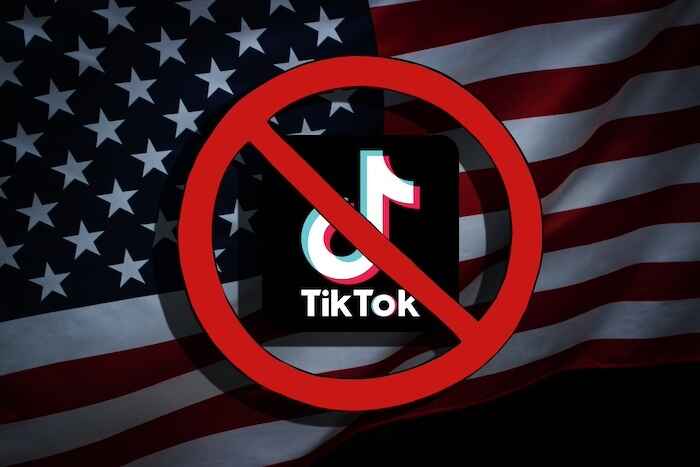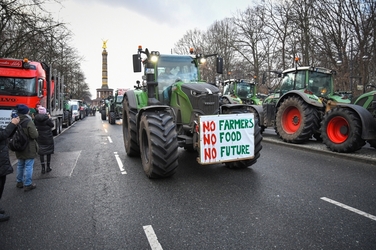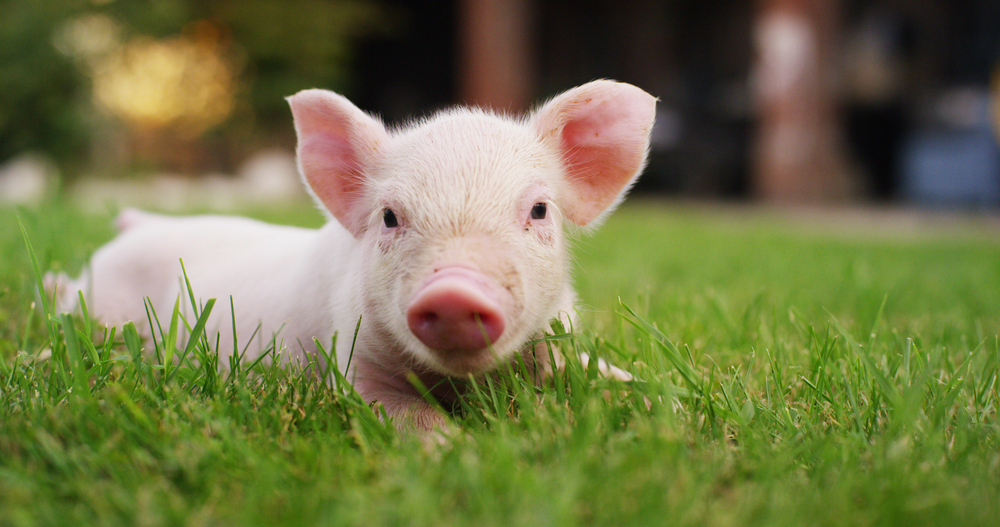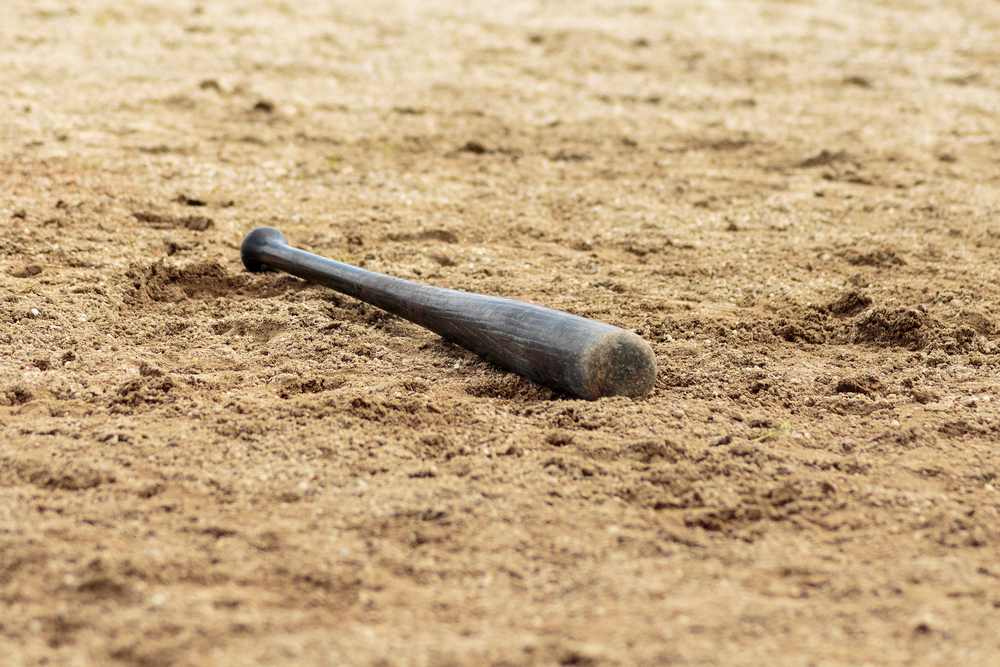In Big Brother We Trust
Joel Salatin|November 8, 2022
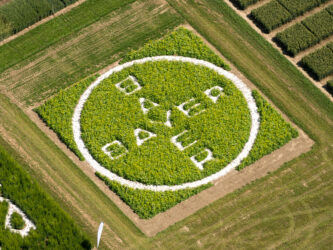
A Note From Amanda: Too many people are buying what the government is selling when it comes to their wealth and their health. A recent court case proves just how dangerous that can be… as Joel explains below.
With each passing day, our society looks to government more and more as the arbiter of right and wrong.
Not the church. Not radicals. Not even the police or juries.
Just look at the recent run of “not guilty” verdicts in the Bayer glyphosate cancer liability cases, which concern the pesticide Roundup. Bayer’s winning streak illustrates our deepening reliance on government credibility.
Who knows if this has been aided by COVID-19, bailouts or the war in Ukraine. I have no idea.
But in all the reports I’m reading about the trials, the most common thread used by the defense is the “Safe” status awarded to the weedkiller by the Environmental Protection Agency (EPA).
I am a “beyond organic” farmer and don’t buy McDonald’s or foods with genetically modified organisms (GMOs). Most folks think I’d be a diehard fan of the EPA due to my environmental proclivities.
But I’ve never been a friend of the EPA’s.
Here we are, half a century after President Nixon created the agency, allegedly in response to blazing rivers and teary-eyed Native Americans (remember those ads?)… watching the EPA provide cover for a toxic herbicide that can’t be good for our world.
Bayer and its chemical buyers, of course, see the weedkiller as useful. Who doesn’t want to kill weeds?
I, for one, don’t – especially since I learned that the plant considered the No. 1 weed in American lawns is clover. Anything that’s an enemy of clover’s is an enemy of mine. Clover is one of the most wonderful plants in the world.
But I digress. Think of all those screaming environmentalists who pushed Nixon to create the EPA. All of them were violently opposed to farming with chemicals.
In general, they disliked big corporations as much as they disliked chemicals. They picketed, wrote letters, and devoted countless hours and sums of money to hearings and lobbying campaigns. The sheer effort expended to get the federal government to create the EPA was staggering.
Now imagine the victory celebrations and congratulatory speeches following the EPA’s creation. People thought the future would be heaven on earth.
Here’s my point…
Do you think any of those millions of people who clamored for environmental protection thought that within 50 years, the agency they created to save the environment would be defending a horribly toxic herbicide?
If any of us today could travel back in time and tell them about today’s court battles, they wouldn’t believe it.
Imagine looking them in the eye and saying, “Do you realize what you’re doing? You’re creating an agency that will cozy up to chemical companies and give them cover to give people cancer.”
None of them would have paused in their crusade.
The fact that a company will pay out somewhere in the neighborhood of $10 billion settling lawsuits and not even slow the production of the herbicide causing those lawsuits is unprecedented.
Normally, when companies get hit with such a spate of lawsuits, they pull the product responsible from the market.
How can Bayer survive this?
Sure, the company has good marketing folks. They’re clever messengers. And the company certainly has loyal buyers who have a warped sense of convenience and ecology ethics.
But the main reason Bayer can weather what would otherwise be a crippling disaster is the EPA staunchly defends Bayer. The courts are the government. The bailiffs are the government.
The juries sitting there listening and watching are incredulous that all those people – those esteemed, credentialed government scientists from their own EPA – could possibly allow something inherently harmful into the public marketplace.
It’s too horrible to comprehend. So the easy thing is to assume the agency is moral, upstanding and honorable.
These recent wins do not prove glyphosate safe. They prove the breadth and depth of Americans’ faith in Big Brother.
After all, if you can’t trust Big Brother, whom can you possibly trust?
You can’t trust social media. You can’t trust religion – it’s full of charlatans. You can’t trust your family – they’re kooks.
As a culture, we’ve been groomed to trust the government – from grade school through public universities and finally by the so-called government watchdogs.
It raises the question: What institutions do most Americans still trust? Thinking people have to wonder.
It reminds me of the first time I traveled on an airplane after the establishment of the Transportation Security Administration (TSA). I was taken aback by having to unfasten my belt and top pants button to be patted down and handled. I made a disparaging remark and was suddenly whisked to a back room by a sheriff’s deputy.
At the small airport, TSA agents outnumbered flyers. I mentioned the cost-benefit equation of this new boondoggle, to which the deputy replied, “This doesn’t cost anything; the government pays for all of it.”
I assume he thought his salary came out of thin air. If this isn’t a commentary on the mentality that the government is a sort of sugar daddy, dispensing favors and wisdom like some benevolent Buddha, I don’t know what is.
And so here we find ourselves, in a courtroom where a jury of peasants must choose between the outfit that educated them, paid for their medical care, paid for their children’s daycare, takes care of their parents and sends them routine checks – all of this – and a fellow peasant down on his luck.
The all-powerful, all-knowing, all-caring state has become God, and you never say He’s guilty.
Such is the state of affairs.

Joel Salatin
Joel Salatin calls himself a Christian libertarian environmentalist capitalist lunatic farmer. Others who like him call him the most famous farmer in the world, the high priest of the pasture, and the most eclectic thinker from Virginia since Thomas Jefferson. Those who don’t like him call him a bioterrorist, Typhoid Mary, a charlatan, and a starvation advocate. With a room full of debate trophies from high school and college days, 12 published books, and a thriving multigenerational family farm, he draws on a lifetime of food, farming and fantasy to entertain and inspire audiences around the world.


